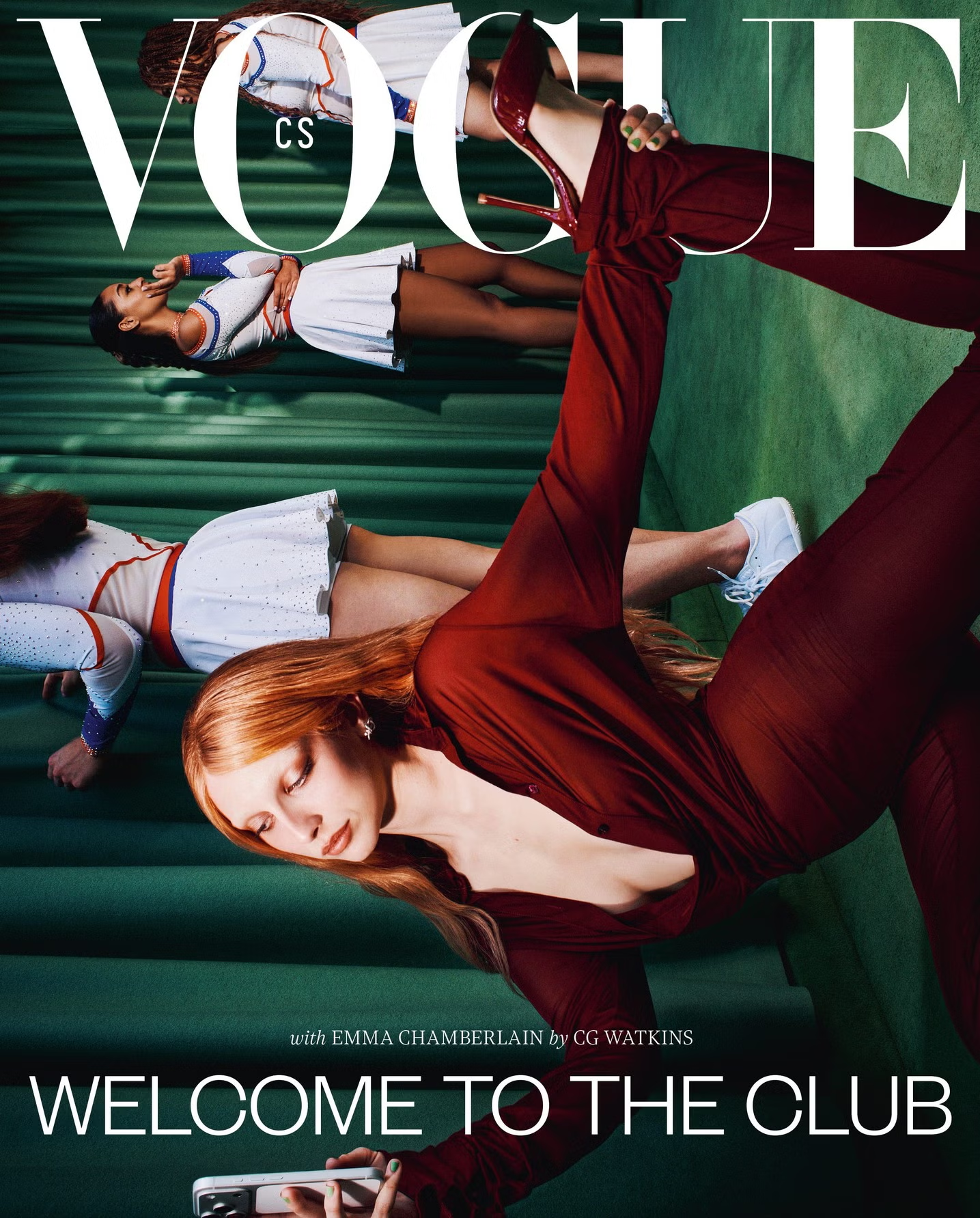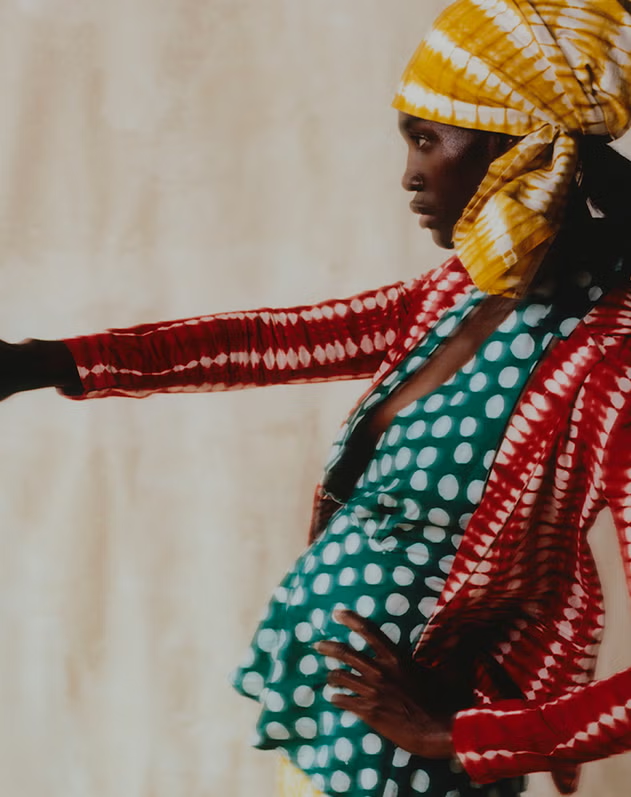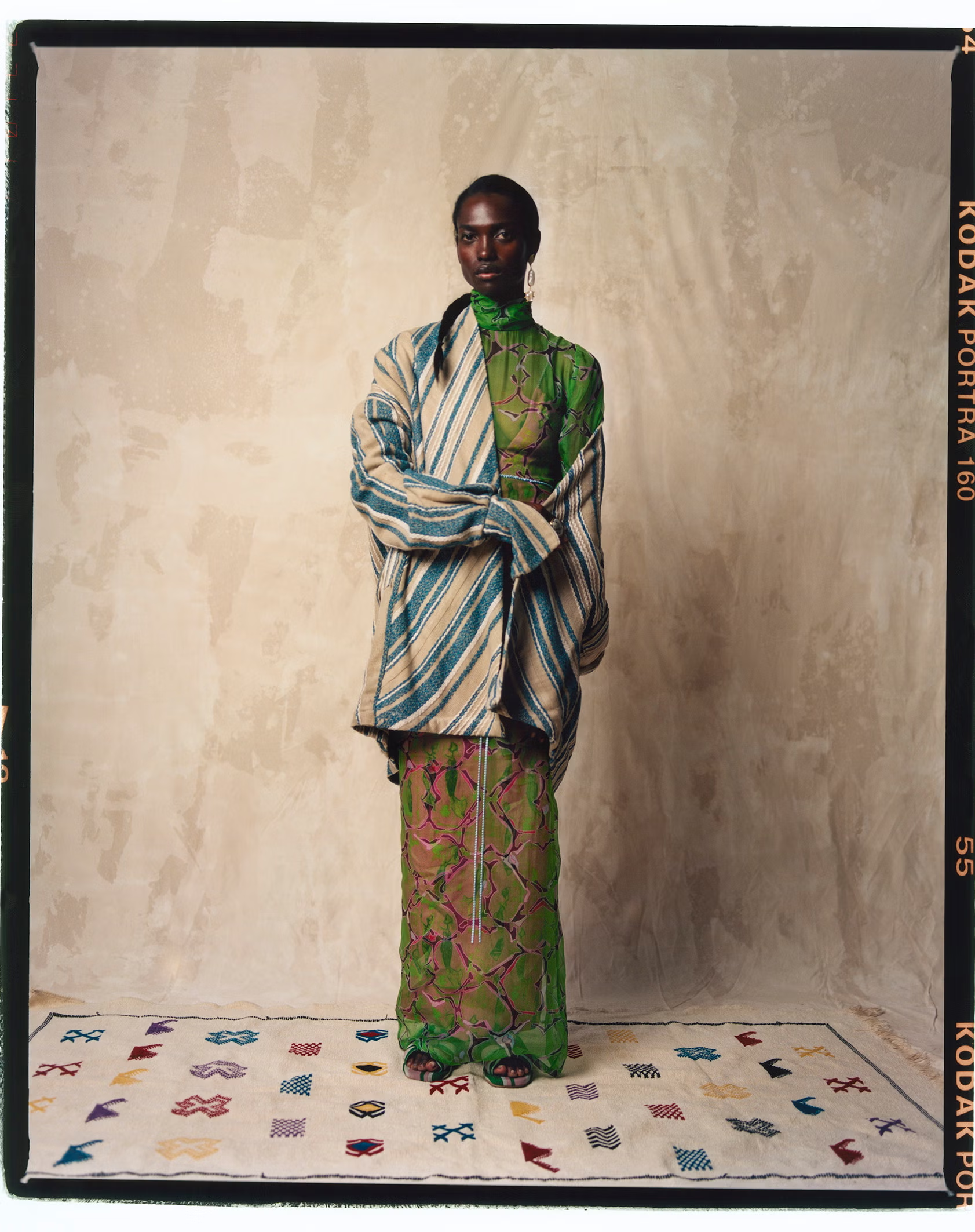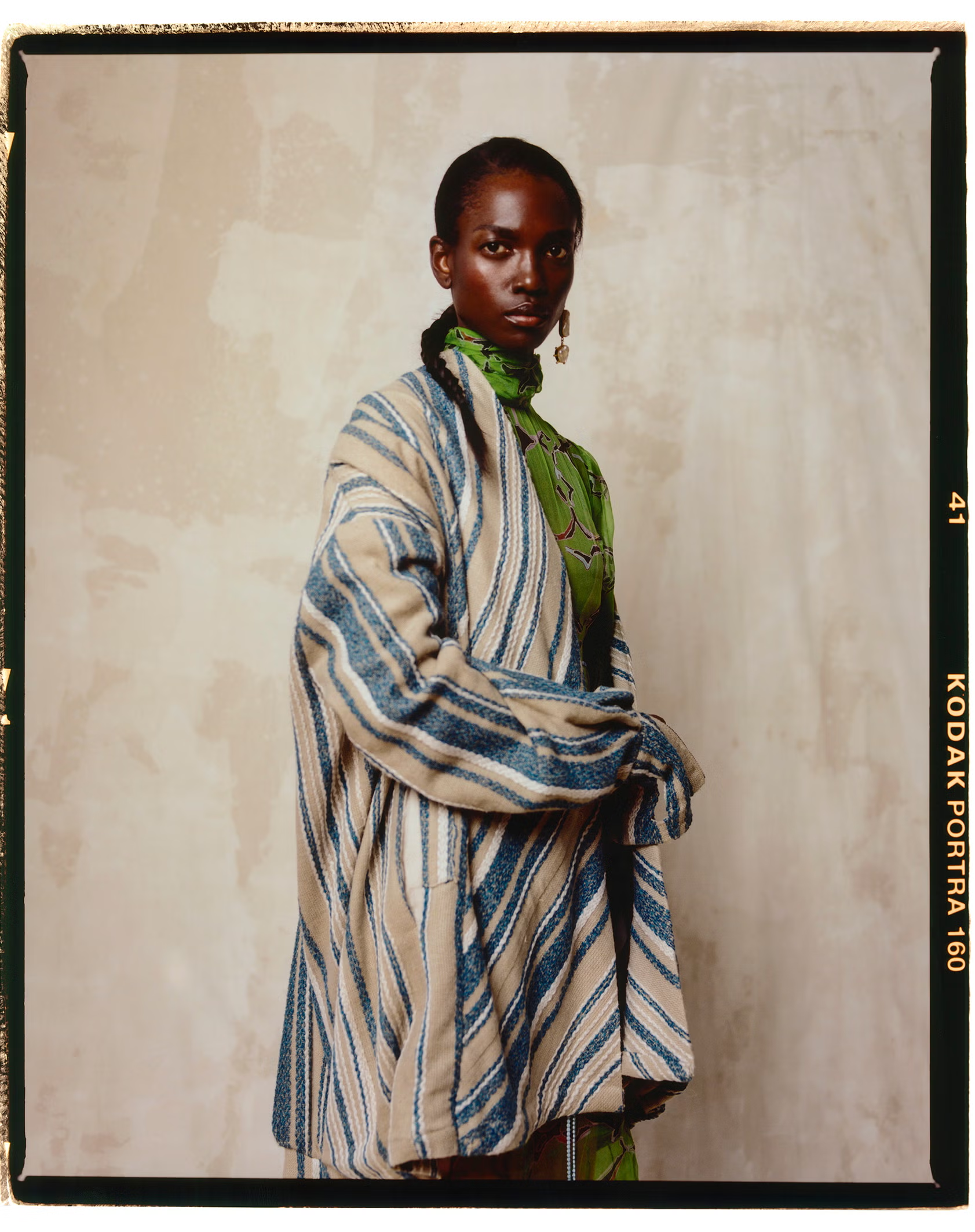Vogue CS in English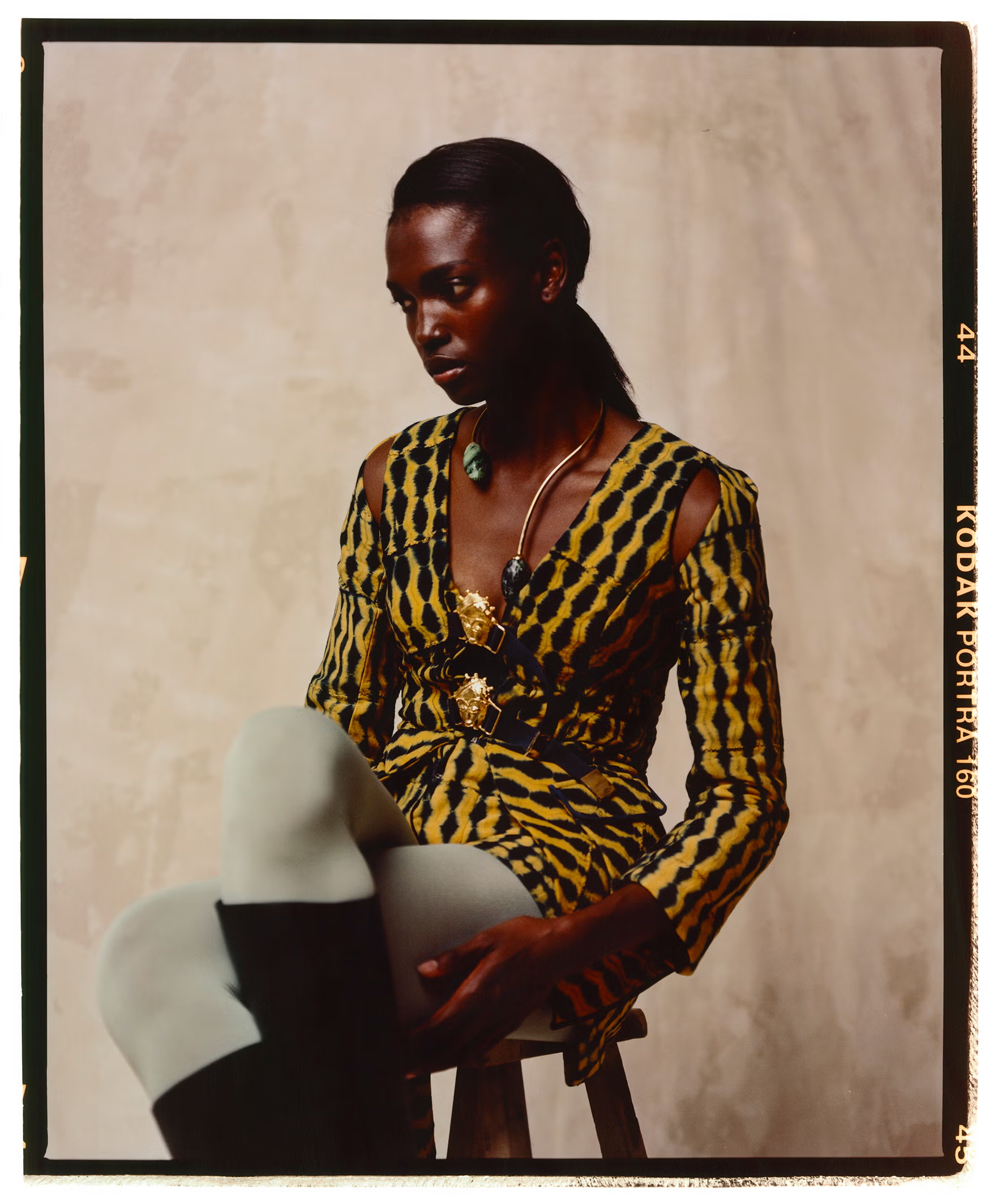
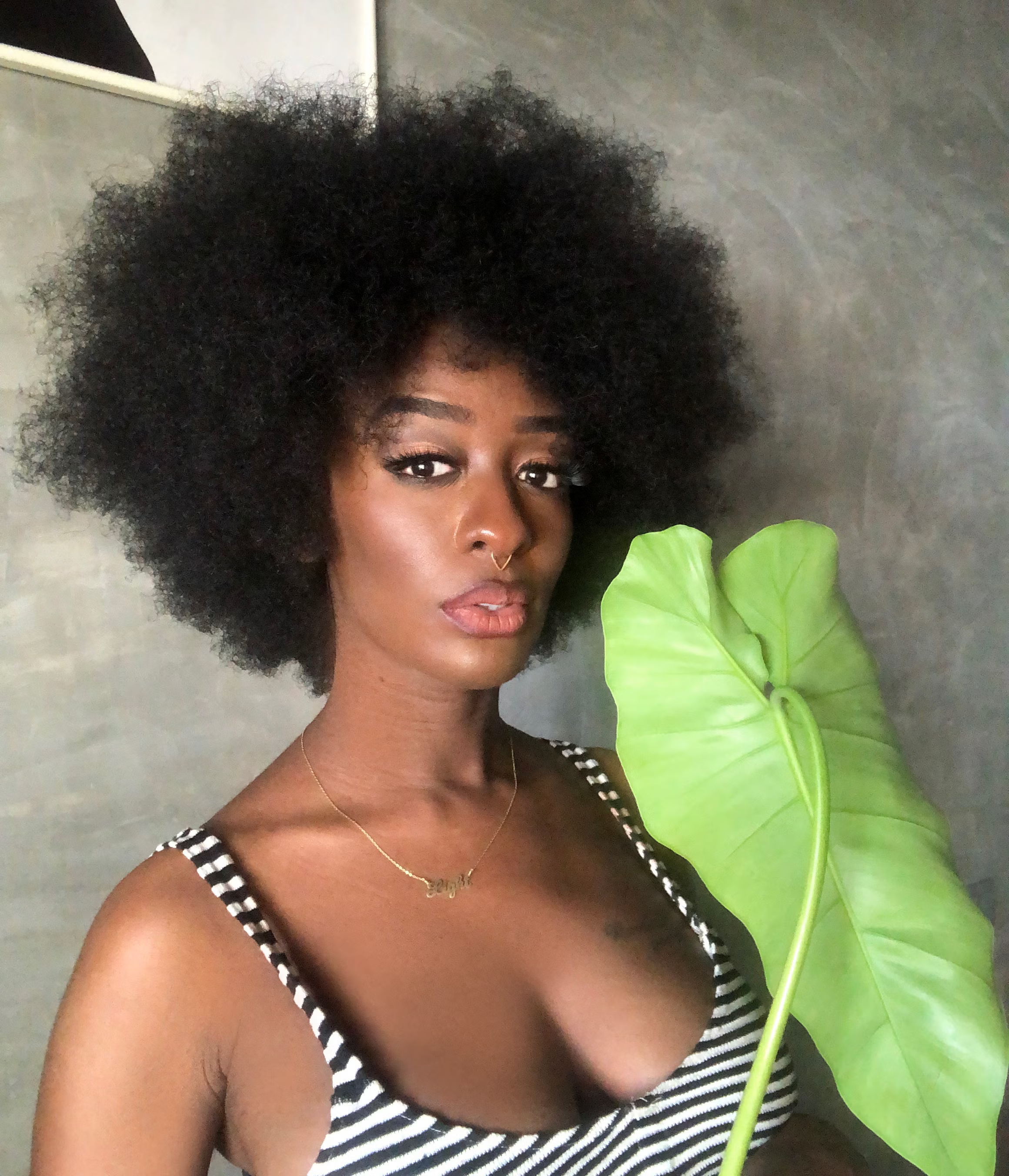
Interivew with Loza Maléombho of Loza Maléombho
Ooooota Adepo1. 8. 2020

Foto: Rhys Frampton
Blazer vest, shorts, Loza Maleombho (sold at Koibird); tights, Wolford; boots, Michael Kors; necklace, Ami Doshi Shah (sold at Koibird).
Ooooota: You were born in Brazil and raised between Côte d’Ivoire and the US. Please explain how experiencing life in these three countries, on three distinct continents moulded you as a creative.
Loza: I think exposure to different cultures contributed to my creative sensibility. I am more tolerant of people’s customs, beliefs, religion and culture. But with that I am also more curious about their cultural expressions and how it can be connected to my work. It has given me the ability to absorb my surroundings and filter the information, for appreciation and also for my own creative expressions.
Ooooota: After founding your label, why was it important to you to keep production in Côte d’Ivoire?
Loza: I needed the entire process to have a purpose. I didn’t just want to make clothes. I wanted to create a sustainable space, which allows for the creation of jobs and opportunities for Ivorian artisans and which inspires younger locals into entrepreneurship. It was important for me to have a higher purpose than just creating a clothing line.

LOZA MALEOMBHO
Ooooota: Your designs are modern yet with strong allusions to Ivorian traditions. Could you discuss what these traditions are specifically and how you have struck the balance between African heritage and cutting-edge style?
Loza: There are many cultural aesthetics that I draw from, not just in Cote d'Ivoire but from other ethnicities in West Africa. After moving back to Africa, I got into studying precolonial history, spirituality and customs. I have read many books on West Africa’s diverse history. You can find in my designs some references to Dahomey Amazons, Akan, Ashanti and an overall theme of royalty and warships meant to empower my consumers. One recurrent item in my brand is the use of the Baoule mask. It’s a small bronze symbol, which looks like the face of a female. It represents joy and union. In my case it represents the union between heritage and modern or futuristic - it’s about creating the bridge between space and time in order to imagine the future. So, the silhouettes are purposely structured often with this, which gives a sense of cutting-edge futurism.
Ooooota: Your SS16 collection contains visuals of masquerades, a very common theme in West African culture. Could you explain the history of the masquerades you photographed alongside your collection in your look book and their significance as a reference in your design?
Loza: The SS16 collection was inspired by the Zaouli mask. Djela lou Zaouli (Zaouli daughter of Djela) was a Guro princess. She is said to have had great beauty and grace. One of the masquerades in the visuals is the Zaouli and is adorned by the country’s flag colours and raffia fringes on his ankles, wrists and waist. The collection revisited these elements in a contemporary way.
Ooooota: You’ve quoted Wangari Maathai on culture and how it is a community’s “reference to the past and their antennae to the future.” How do you capture this in your creative process?
Loza: I think the brand embodies this quote perfectly because exactly what we are doing is revisiting the past in order to imagine the future.
Ooooota: You’ve spoken about the inherent luxury in African craftsmanship, particularly of artisans who create the meticulously designed Baoule and Kente cloths. How can Africans begin to better appreciate such luxuries? How should we as Africans share or not share these luxuries with the rest of the world?
Loza: I think it needs to start at a local level. Governments need to support the textile industries of their respective countries with initiatives. Designers should be encouraged to use local textiles with tax exemption incentives. Textile weavers need intellectual property protection. All of this would promote local consumption. We need to create our own codes and definitions of what luxury means for us.
Ooooota: Following your recent Instagram post, what is your greatest lesson on the subject of love?
Loza: I think my greatest lesson thus far has been that it is better to have a broken heart than being in a relationship without peace of mind. Your peace must be protected at all costs. It starts with recognizing and/or defining what this peace is, cultivating this peace and respecting this peace. I guess it all comes down to loving yourself first.
